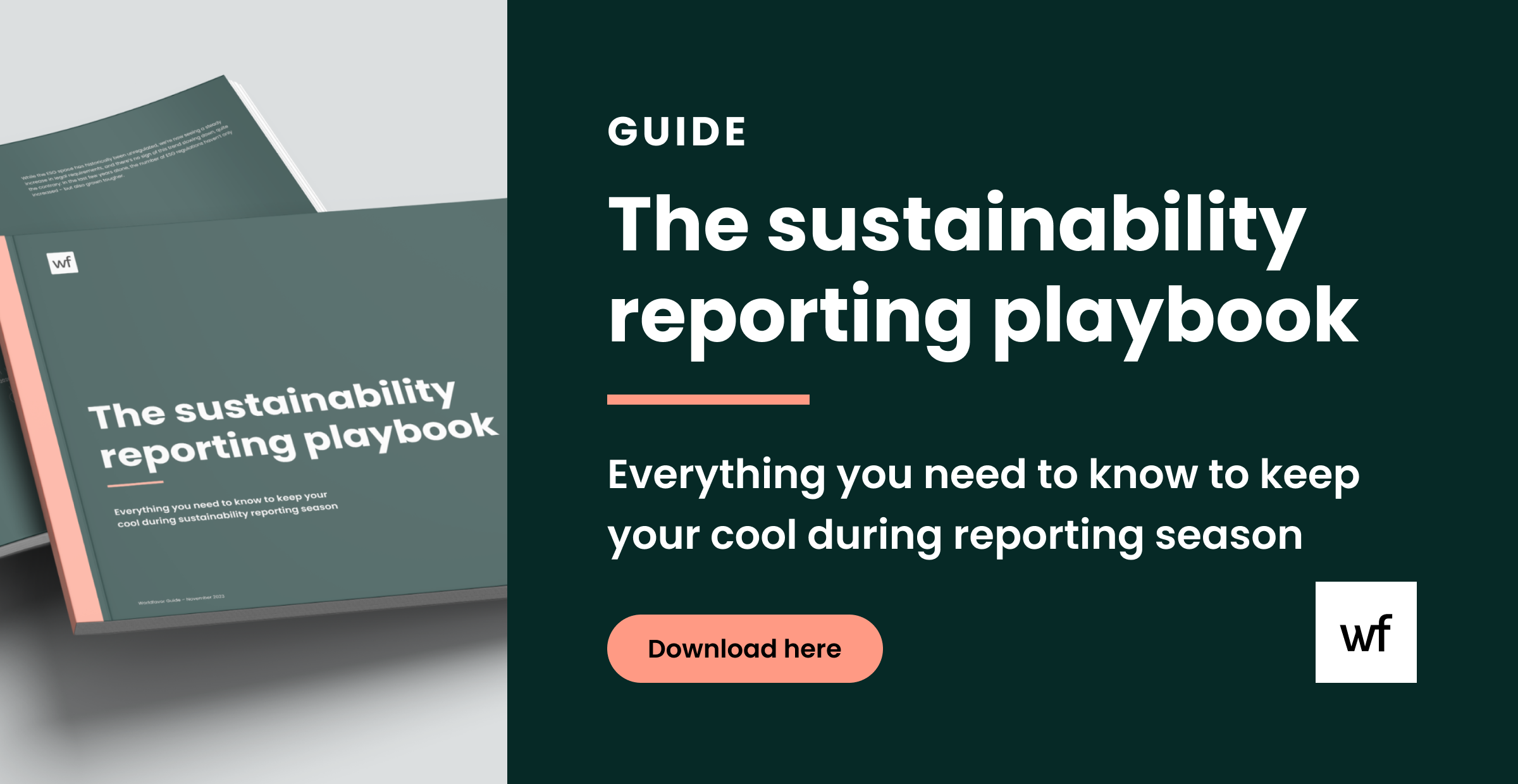5 sustainability reporting frameworks to help your organization set priorities

By establishing a set of goals, measuring performance, and managing change, you can make your operations more sustainable. The first step is to choose which reporting framework to follow.
The main aim of sustainability reporting frameworks is to turn theoretical issues into concrete actions. Sustainability reporting will help your organization set priorities to reach environmental and social impact goals by exposing both positive or negative impacts on the planet, society and the economy. The UN Sustainable Development Goals should probably be familiar to you by now, so here, we look at some other common sustainability reporting frameworks you may wish to look at more closely:
Global reporting initiative (GRI)
GRI is an independent international organization that has pioneered sustainability reporting since 1997. The GRI Sustainability Reporting Standards (GRI Standards) are a reporting framework for organizations to disclose both positive and negative impacts on the environment, society and the economy. GRI Standards are designed to be universally applicable to all organizations of all types and sectors, large and small, across the world. Find out more about GRI standards here.
International organization for standardization (ISO)
ISO is an independent, non-governmental international organization with a membership of 164 national standards bodies. One of its more important standards is ISO 14001, the international standard that specifies requirements for an effective environmental management system. It provides a framework that an organization can follow, rather than establishing environmental performance requirements. Find out more about ISO here.
Tips! Want to know more about how can work with ISO Standards in Worldfavor? Read about our Sustainability Management solution.
Principles for responsible investments (PRI)
Supported by the United Nations, the PRI is the world’s leading proponent of responsible investment. It works to understand the investment implications of ESG factors and to support its international network of investor signatories in incorporating these factors into their investment and ownership decisions. The PRI actively encourages investors to use responsible investment to enhance returns and better manage risks, but does not operate for its own profit. Find out more about the PRI here.
Sustainability accounting standards board (SASB)
Founded in 2011, SASB focuses specifically on developing standards for sustainability information aimed at investors: data that could affect their financial decisions about a company. It basically connects businesses and investors on the financial impacts of sustainability. Together with GRI, SASB is one of the most important frameworks for sustainability reporting. Find out more about SASB here.
In the end of 2020 SASB and GRI announced a collaboration, aiming to create better transparency and trust among reporting companies.
United Nations Global Compact
UN Global Compact is a voluntary initiative for companies that are willing to set in motion changes to business operations so that the UN Global Compact and its Ten Principles become part of strategy, culture and day-to-day operations. Since July 2000, UN Global Compact has received more than 62,000 public reports by over 9,000 companies in 159 countries. Find out more about UN Global Compact here.
Want to know more about sustainability reporting in Worldfavor and learn how we can help you get up to speed with your sustainability reporting? Book a free demo and learn how Worldfavor's platform can help your company overcome its reporting burden.
Related blog posts you might like:







%20as%20the%20deadline%20approaches.%20Learn%20about%20compliance%20requirements%2c%20potential%20delays%2c%20and%20key%20updates..png)

